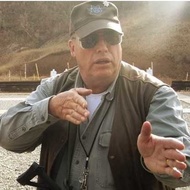26 Mar 19
“When victory is always easily attained, you must reevaluate the worthiness of your ambitions”
Attila the Hun
Simulator Training:
This is from a friend at Virtra, manufacturers of the latest generation of video simulators, currently in use by many institutions and agencies.
“In order to extract maximum learning and benefit from these sophisticated simulators, we need to use them less for ‘testing,’ more for ‘training.’
Instead of bringing-in a single student, running them through a video scenario, and them telling them what they did ‘right’ and ‘wrong,’ we need to bring in a group of students, run one of them through the same scenario (but with differing outcomes) several times, with everyone else watching
Students need to be assured that they will get credit for attending, but will not be receiving a ‘score.’ Students need to lose their fear of failing in front of their peers. They need to fail! We want them to ‘experiment’ with behaviors and solutions. We want them to experience the consequences of unsound decisions. That is all part of the learning/training experience!
Then, using the Socratic Model, instructor discusses the student’s decisions and overall performance with him and the entire class.
Then, it is the next student’s turn, this time with a different scenario (there are hundreds available).
Students confront a gallery of characters, settings, and circumstances. Sometimes, there are ‘clues.’ Sometimes,
there are none. When there is a suspect(s), sometimes he/they runs away. Sometimes, he complies with the student’s verbal commands. Sometimes, he becomes verbally threatening. Sometimes he becomes violent. Sometimes, weapons are present. Sometimes, bystanders interfere. Sometimes, footing is unstable. Sometimes, no one there speaks English!
Officers have the option of doing nothing, summoning assistance, verbal interaction, movement, taking cover, Tasers, OC, deadly force.
With modern systems like the Virtra, options and outcomes (and therefore learning opportunities) are virtually unlimited.
The degree of ‘chaos’ inherent to each scenario is adjustable. As students progress, additional chaos can be injected, all with scant risk of actual injury to students and others present.
Instructors explain that ‘perfect outcomes’ are not expected, and in fact are pretty unlikely.
What we’re looking for is (1) watchfulness, (2) professional conduct, (3) sound judgment, (4) reasonable choices, (5) sound individual/team tactics (positioning, verbalizations, use of cover, etc), (6) competence in the use of equipment, (7) a good grasp of the law and department policy.
Students learn that risks attach to every choice! A ‘bad outcome’ does not necessarily mean the student acted incorrectly, nor does a ‘good outcome’ necessarily mean the student was error-free!
Which is why a ‘free discussion’ of the student’s actions and timing needs to follow every scenario. We all benefit and learn!
A student’s performance will rarely be ‘perfect,’ nor ‘perfectly bad.’ We encourage students to do the best they can, doing what they believe they would do on the job, not just what they believe the instructor wants to see!
‘Spectacular successes,’ along with ‘spectacular failures,’ are all expected and are an integral part, and should be part, of the experience!
Many repetitions are good, and are possible because there is no need to drive to and from a range, no necessity to recharge magazines, no range clean-up, no weapon cleaning, no walking back and forth to examine holes in targets.
All that saved time can be devoted to scenarios and after-action conversations, all for fractions of a penny per trigger-press!
Virtra features an editing program that lets instructors manufacture their own events. High-definition characters can literally be dropped-into an agency’s own locations and backgrounds. These characters feature built-in logic, so instructors can use them at various interactive depths.”
Comment: Virtra is certainly not the only manufacturer of quality video-simulators, but they are currently the most advanced and sophisticated.
These systems are all expensive, no doubt!
Some are portable (to a degree).
With all that, we need to get our officers this experience every chance we get. There is much benefit, scant risk,
as we see.
These systems can surely be used for ‘testing,’ but their greatest value is in using them for training, where there is no risk of an officer receiving any kind of permanent “black mark.”
Used that way, we won’t be able to keep officers away from them!
/John


